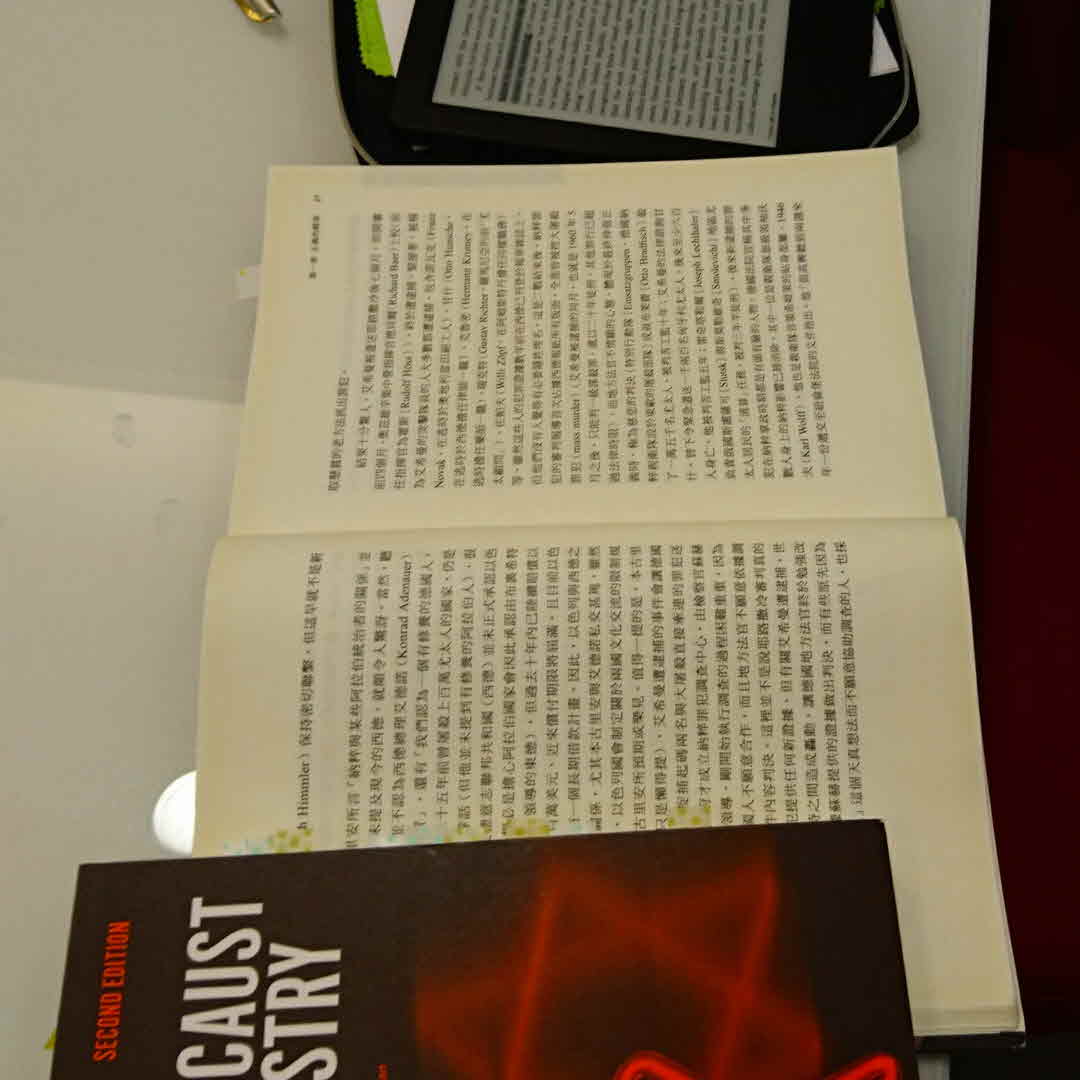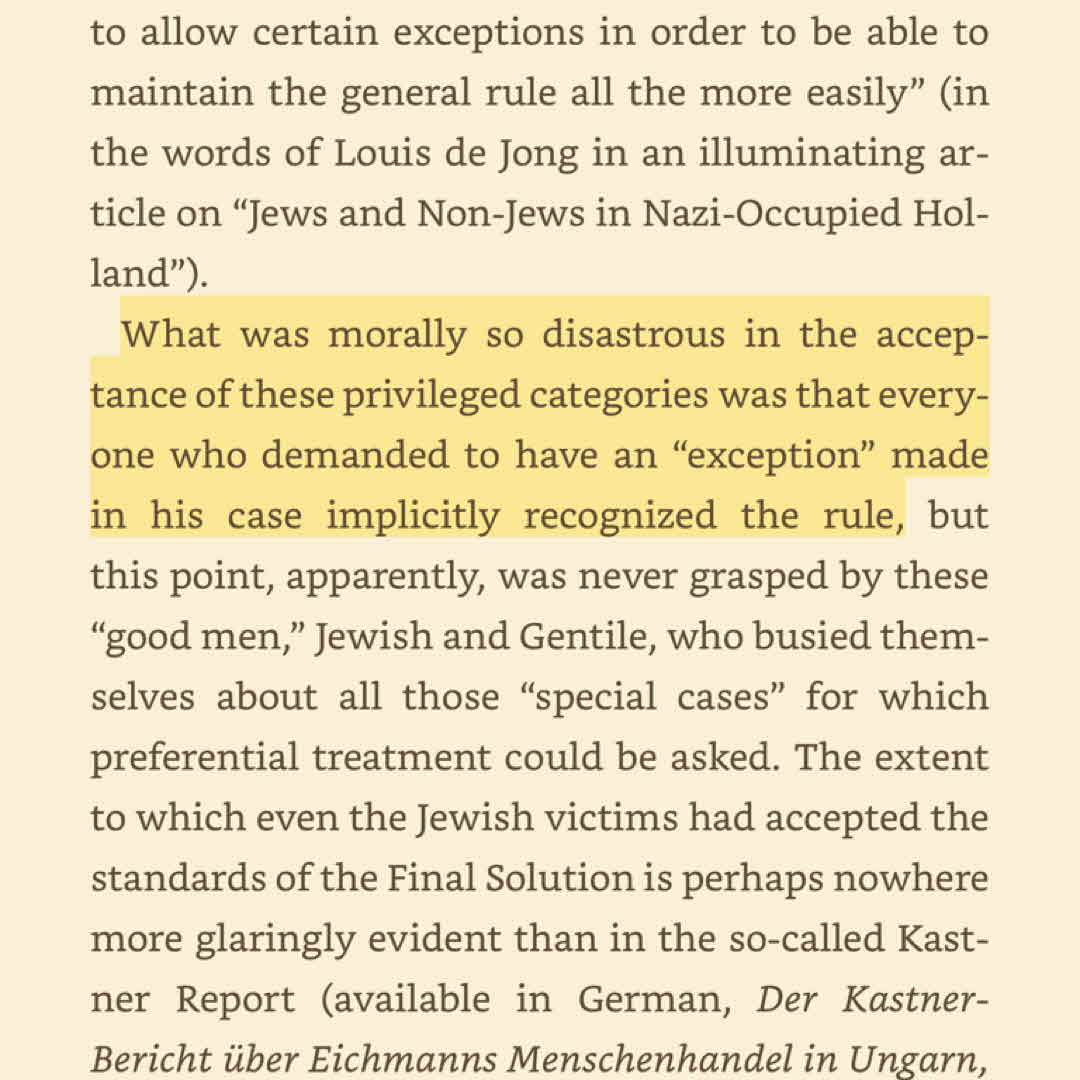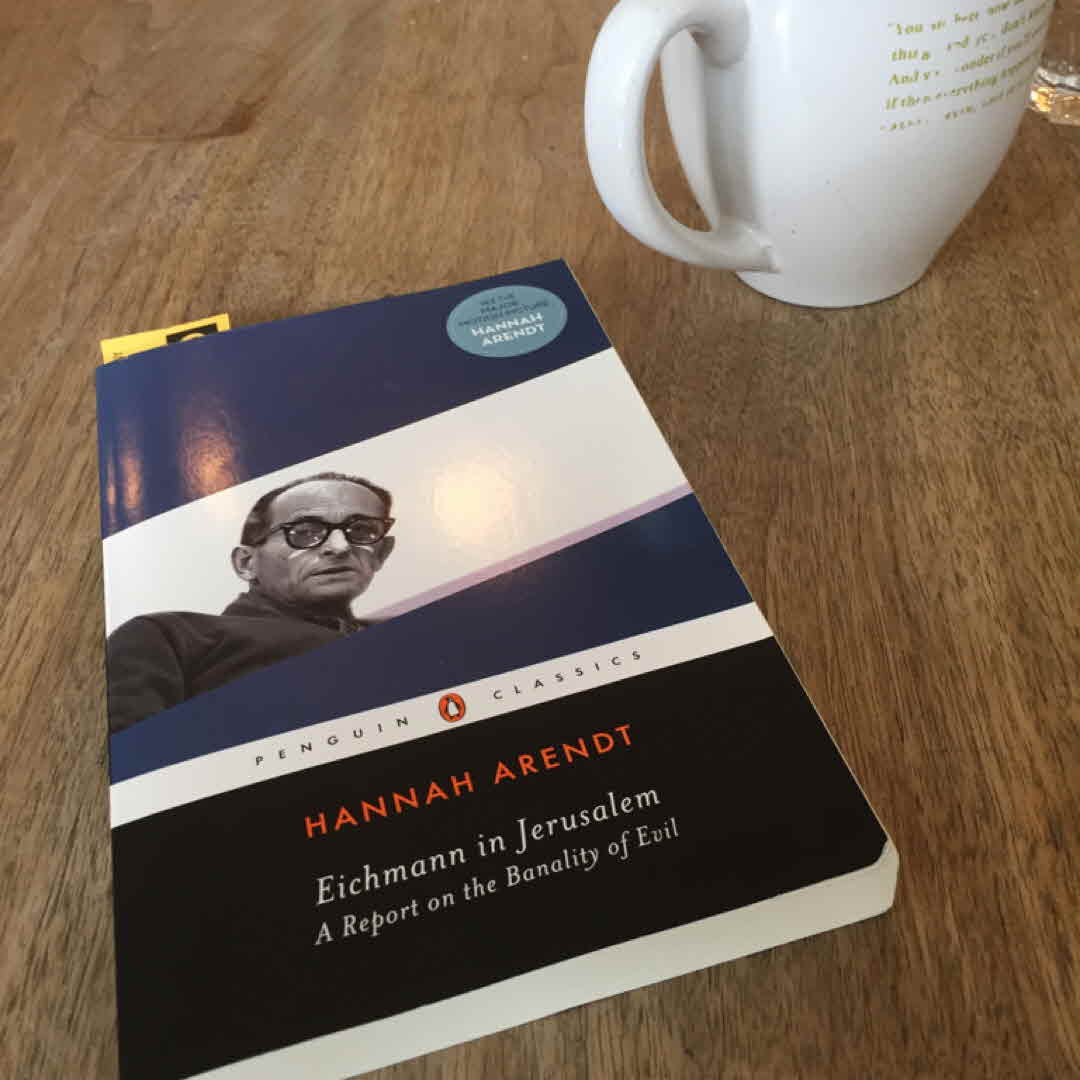
After reading the disturbing beyond words chapter on Eichmann in Hitler‘s People, I am so looking forward to tonight‘s #hyggehourReadathon.
The chapter includes a discussion of Arendt‘s true meaning of her term â banality of evil.‘

After reading the disturbing beyond words chapter on Eichmann in Hitler‘s People, I am so looking forward to tonight‘s #hyggehourReadathon.
The chapter includes a discussion of Arendt‘s true meaning of her term â banality of evil.‘
A highly controversial book, how much you believe Arendt, and thus how much you believe in her depiction of Eichmann, will decide if you like the book or not. Eichmann is drawn as shockingly human, and this will make some readers very uncomfortable. Still, a great author tackling a tough subject makes for thought provoking reading.

Not exactly a feel-good read, but I heard about this book and was intrigued by the conversation on âthe banality of evil.â

#WinterWonderland #December1963 This book was first published in May 1963 and then rereleased with a much snazzier cover in December 2006. I came across this title last week in another book which felt like #BookKismet ð«ðð«â¨ð«ðHas anyone read this book?? In the book Our Short History, a dying mom is putting together a future book list for her son and this book was on the list.
Taking a break in #24in48 by listening to Arendt tearing Eichmann apart (bc that's totally relaxing). I'm at 10hr and am feeling good about my ability to get to at least 12hr today.

Doing research for next month's book club pick. Sooooooooo tired.

I've just watched The Eichmann Show on BBC player. It was good, but horrific, and will definitely influence my next re-reading of Arendt's Eichmann in Jerusalem: The Banality of Evil. Why isn't this book suddenly a bestseller next to 1984? It isn't just about the Holocaust, it is about how mundane evil acts are and how nearly anyone can slide into inhumanity, given the right circumstances. It is also well written & not too long. Go read it.

Splendid! "A good one for shaking me out of a complacency in judgments and lazy simplifications in thought." Indeed!

For these times.
An amazing story in which philosopher Arendt reports from Jerusalem about the trial of Eichmann, one of the architects of the final solution. Instead of finding a monster as she expected she finds a bureaucrat, a man who acted for self aggrandizement rather than belief. The banality of evil.